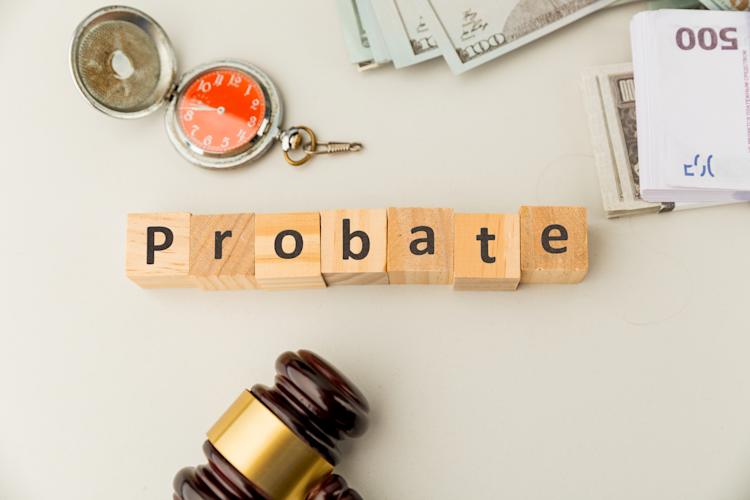

Estate Planning Resources & FAQs
While it is possible to draft simple estate planning documents using do-it-yourself legal resources, the American Bar Association generally does not recommend doing so. Before you hire an estate planning attorney, review these resources so you have an idea of what questions you should ask during your consultation.
Estate Planning Attorneys
Have you ever worked with an attorney before? If not, these pages should help you anticipate what to expect when it comes to cost and the legal process.
Estate Planning Information and Resources
Do you need a trust, a will, both? These resources can help you identify which documents you need to ensure proper transfer of your assets to your heirs.
- 7 Steps To an Effective Estate Plan
- 7 Tips for Writing an Explanatory Letter for Your Will
- How Is a Revocable Living Trust Different Than a Will?
- How Long Does It Take To Create a Trust?
- How To Avoid Family Disputes Over a Will
- How To Provide For Your Pet After You Die
- The 5 Most Important Estate Planning Documents
- What Happens to My Debts When I Die?
Find a Top-Ranked Estate Planning Attorney Near You
We did the research for you!
- Licensing
- User Reviews
- Mystery Shopping Calls
Learn about our selection process.
FAQs
What does an estate planning attorney do?
An estate consists of the total assets that form an individual’s net worth, no matter how large or small. Estate planning attorneys use their in-depth knowledge of state and federal laws to help people best manage what will happen with their estates after they die or become incapacitated. Estate planning attorneys can prepare wills, form trusts, reduce estate tax burdens, and decrease or eliminate the need for probate court.
What are valuable estate planning services an attorney can provide?
With the many intricacies of assets, taxes, and state and federal laws that can affect a person’s estate, an estate planning lawyer can be a valuable professional asset, no matter how large or small a person’s estate may be. An estate planning attorney can:
- Create a comprehensive plan to protect a client's legacy, that includes a will, power of attorney, trusts, life insurance, and advanced medical directives
- Optimize an estate plan as tax laws, life events, assets, and goals change over time
- Protect a client’s loved ones by preventing assets from entering probate
- Help clients designate a person to make important health decisions for them if they become incapacitated
Can estate planning attorneys help create trusts/wills?
Estate planning attorneys can create trusts and wills. Through a will, an attorney can help a client designate their estate’s beneficiaries and assign an executor to represent the will in probate court. These attorneys can also create trusts, allowing a client to assign a trustee to oversee the estate, potentially avoiding probate court and holding assets to be distributed over time.
Is estate planning the same as drafting a will?
While both estate plans and wills officially document how their owners wish to allocate certain assets after their death, there are key differences. In estate planning, a will is often just one of several documents that form a comprehensive plan. In a will, people must designate a person responsible for executing their will after their death. The will can include guardians for their children when they die and beneficiaries to receive an inheritance of money, property, and other assets.
What are the steps involved in estate planning?
To create a thorough and effective estate plan, individuals should follow these steps:
- Prepare a will that designates an estate executor; indicate who will receive what assets, and assign a trust and guardians for any children. Consider using an attorney if the will is in any way complex.
- To avoid probate, have an attorney create a revocable living trust.
- Assign beneficiaries to other assets, such as life insurance policies, retirement plans, and securities.
- Use an attorney to prepare a living will, name a health care proxy, and create a HIPAA release form.
- Update the plan every five years.
How long does the estate planning process last?
The length of the process can vary greatly depending on the size and complexity of the estate, the specific law office, and whether there’s an emergency or urgent need. If you’re using an attorney, you can generally expect it to take one to five weeks. You may be able to speed up the process by immediately providing your attorney with any bank statements or other documents they need.
What is a trust?
A trust is an agreement between a grantor, a trustee, and a beneficiary. In this agreement, the grantor allocates funds or real property assets to the trustee to be held either until the grantor passes away or until a specific, agreed-upon date. At that point, it's the responsibility of the trustee to distribute funds or property to the beneficiary or beneficiaries. While there are similarities between a will and a trust, a will is a more comprehensive document that typically requires probate court, while a trust allows assets to pass to the beneficiary without probate.


